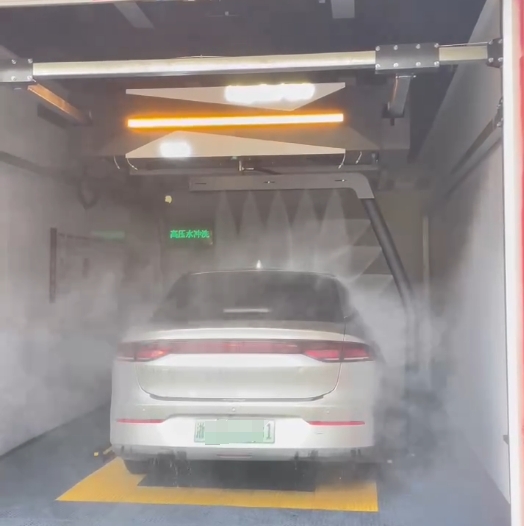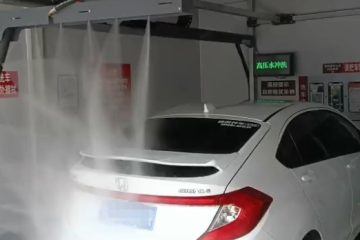The automotive landscape is constantly evolving, and car wash technology is no exception. While traditional brush car washes remain prevalent, a new generation of contactless car wash machines is gaining significant traction, promising a cleaner, more efficient, and environmentally friendlier approach to vehicle cleaning. This article explores the benefits and workings of this increasingly popular technology.

How Contactless Car Washes Work:
Unlike traditional brush washes that rely on physical scrubbing, contactless car washes utilize high-pressure water jets, specialized detergents, and often, advanced cleaning chemicals to remove dirt and grime. The process typically involves several stages:
Pre-soak: A high-pressure pre-soak loosens dirt and debris, preparing the vehicle for the main cleaning phase.
Wash: High-pressure water jets, often combined with specialized cleaning solutions, thoroughly cleanse the vehicle’s exterior. These solutions are designed to be effective yet gentle, minimizing the risk of scratching or damaging the paintwork.
Rinse: A powerful rinse removes all traces of detergent and loosened dirt.
Drying: Many contactless systems incorporate high-velocity air dryers to speed up the drying process, reducing water spots and minimizing environmental impact. Some even utilize advanced drying technologies that minimize water usage further.
Benefits of Contactless Car Wash Machines:
The advantages of contactless car washes are numerous:
Reduced Scratches and Swirl Marks: The absence of brushes eliminates the risk of scratches and swirl marks, preserving the vehicle’s paint finish. This is especially beneficial for cars with delicate paint jobs or clear coats.
Improved Cleaning Power: High-pressure water jets can reach areas inaccessible to brushes, providing a more thorough clean.
Enhanced Environmental Friendliness: Contactless systems often consume less water and cleaning chemicals compared to traditional brush washes, resulting in a lower environmental impact. Many also utilize biodegradable detergents.
Increased Efficiency: The automated nature of contactless car washes allows for faster processing times, resulting in higher throughput and reduced wait times for customers.
Safer Operation: Eliminating the moving parts of traditional brush washes improves safety for both operators and customers.
Future Developments:
The technology behind contactless car wash machines continues to advance.
Future innovations are likely to focus on:
Advanced Sensor Technology: Improved sensors will enable more precise cleaning, adapting to the size and shape of different vehicles.
Water Recycling and Conservation: Further advancements in water recycling and conservation technologies will minimize water usage even further.
Eco-Friendly Cleaning Solutions: The development of more sustainable and biodegradable cleaning solutions will enhance the environmental benefits.
Integration with Smart Car Technology: Potential integration with smart car technology could allow for automated scheduling and payment.
In conclusion, contactless car wash machines offer a superior cleaning experience with significant environmental and operational advantages. As technology continues to evolve, this innovative approach is poised to become the dominant method for vehicle cleaning in the years to come. The cleaner, greener, and more efficient future of car washing is here.




